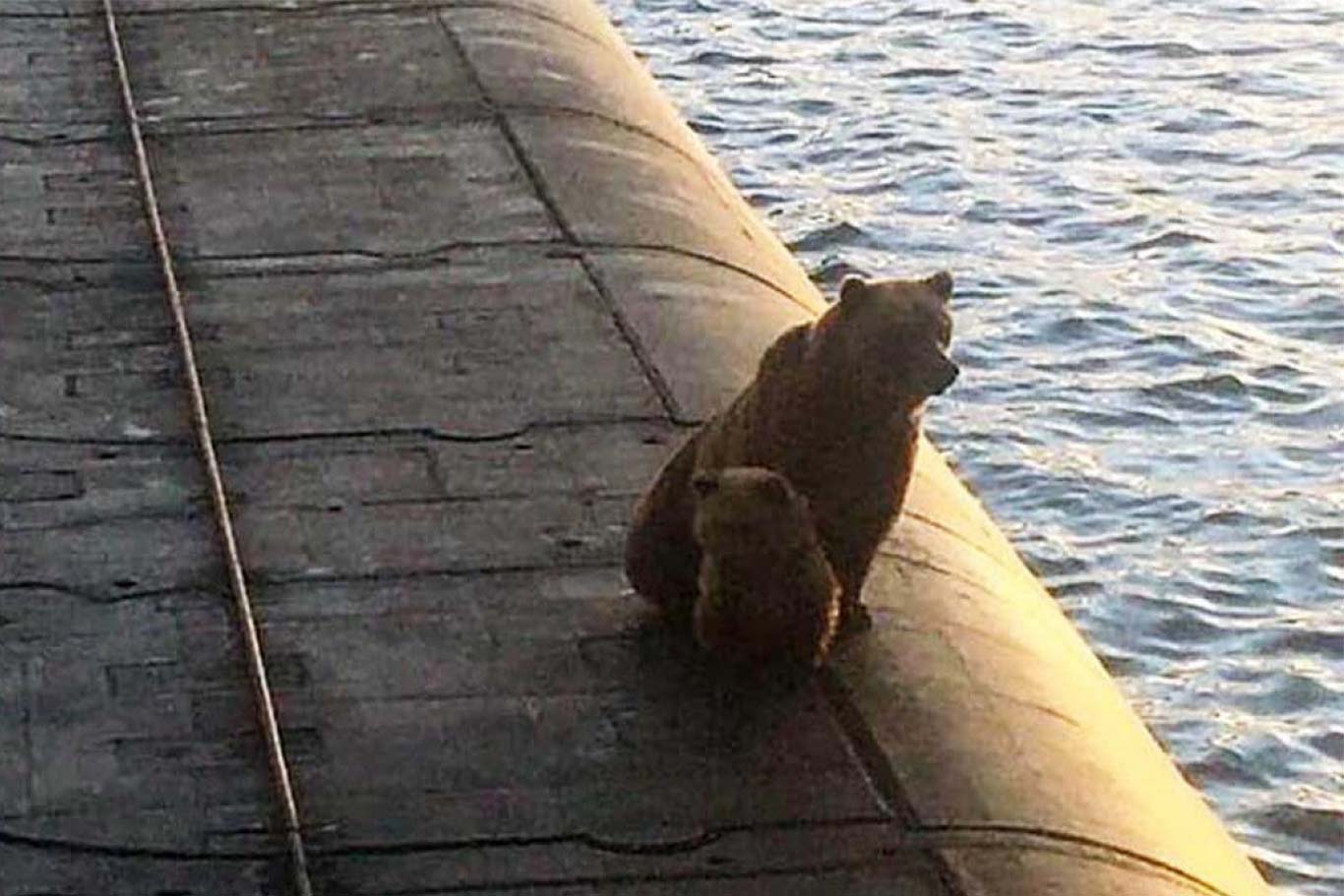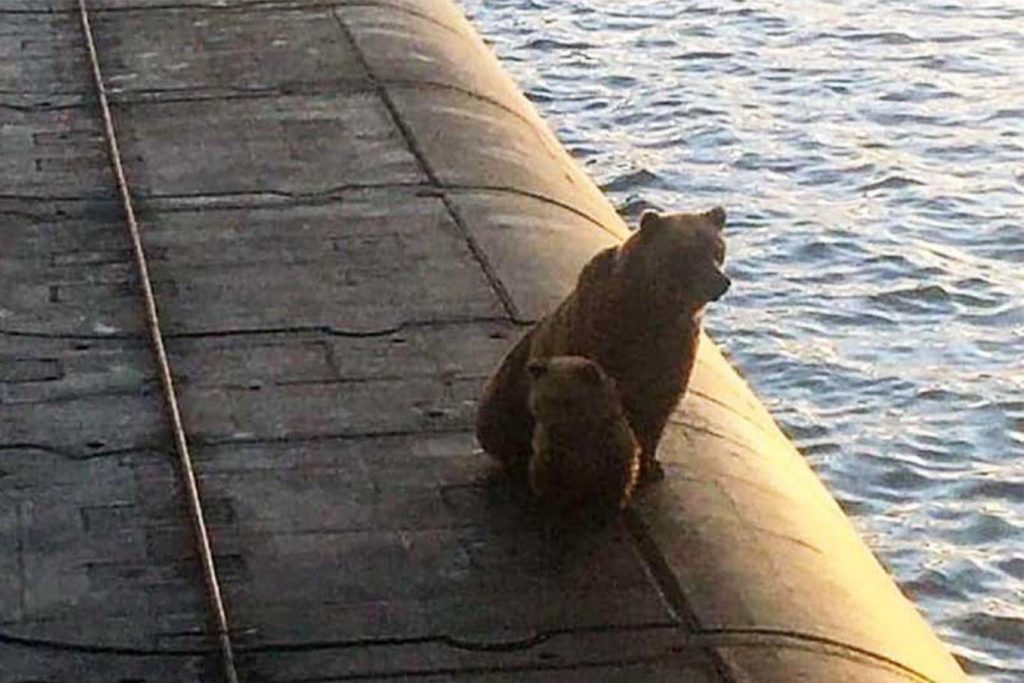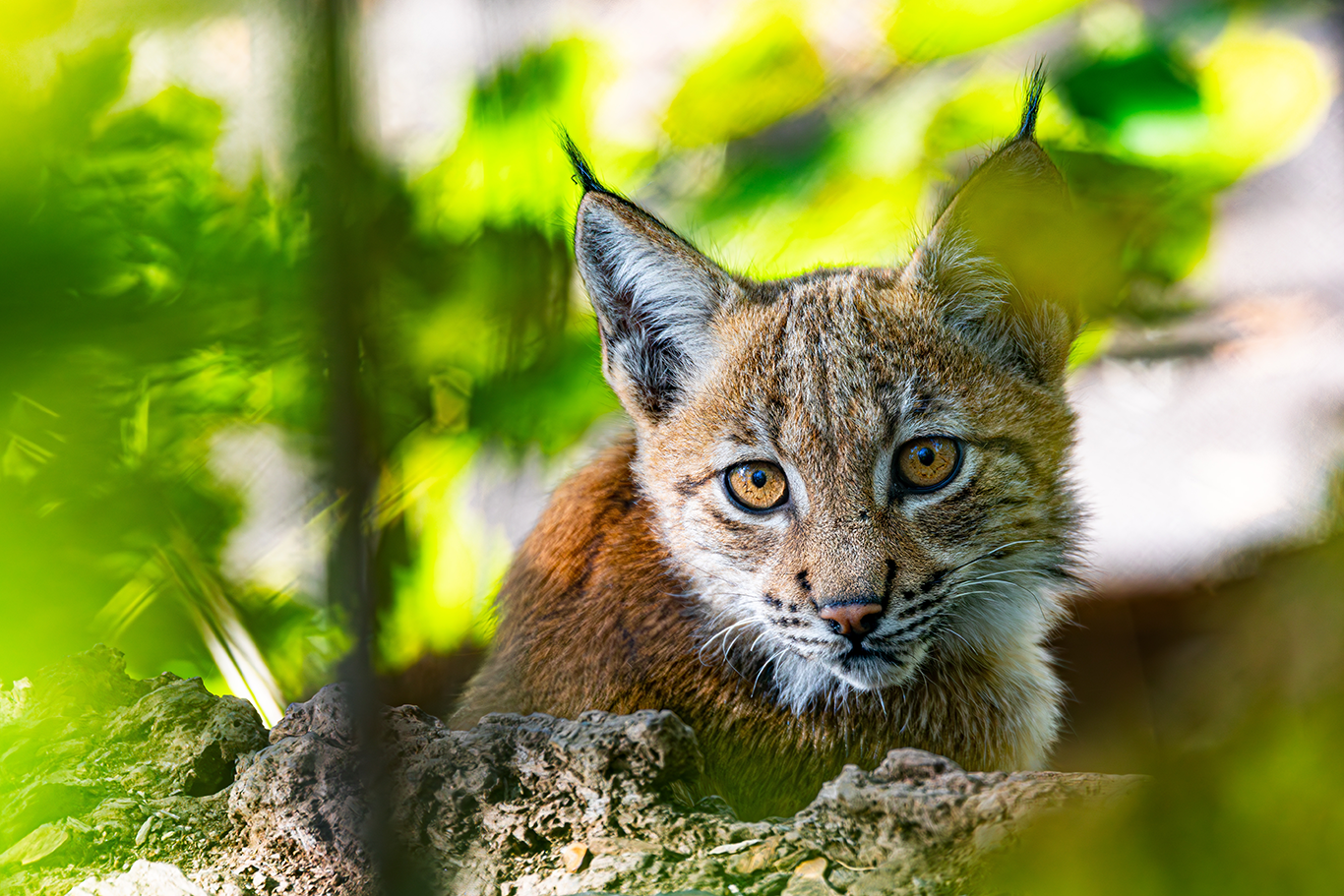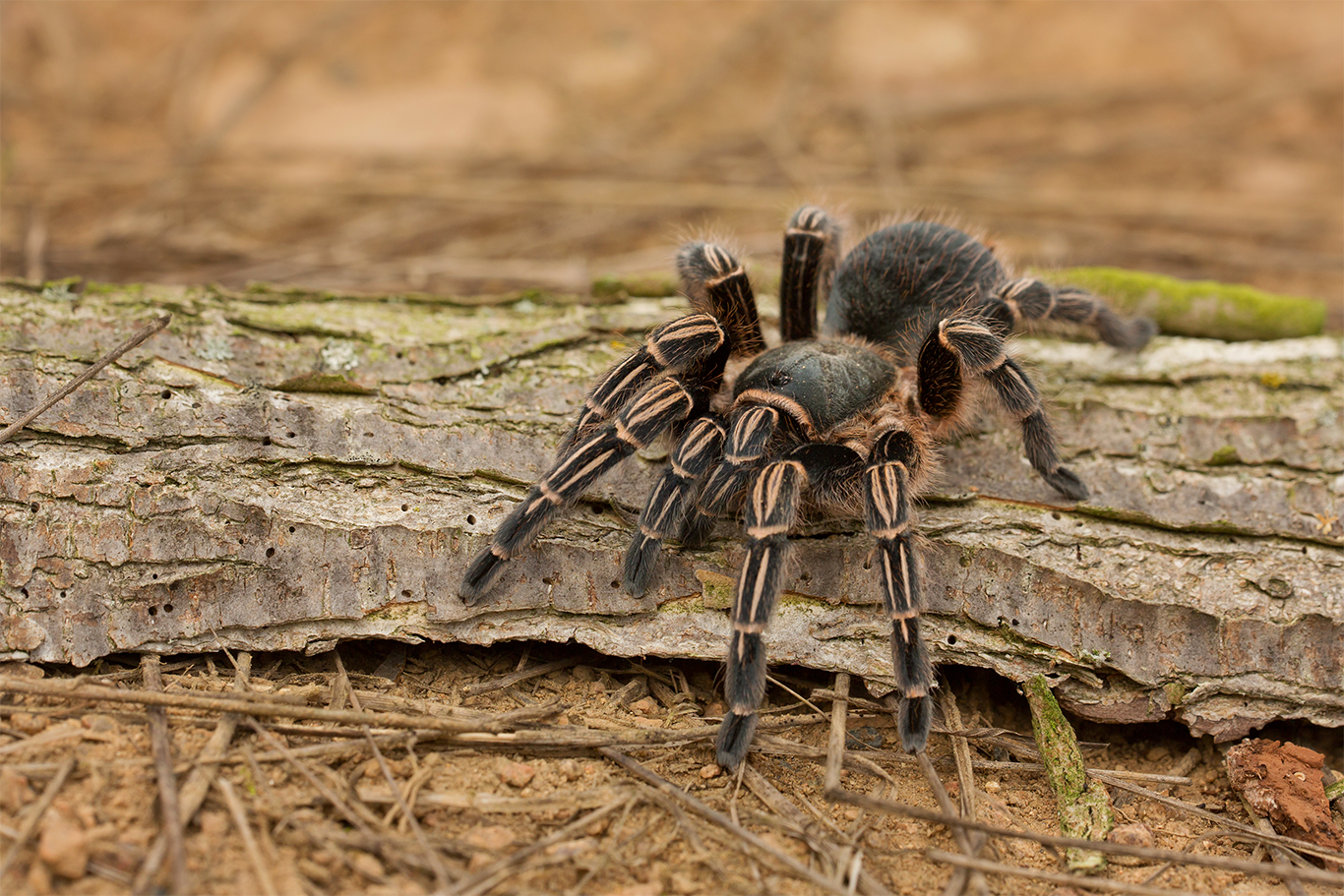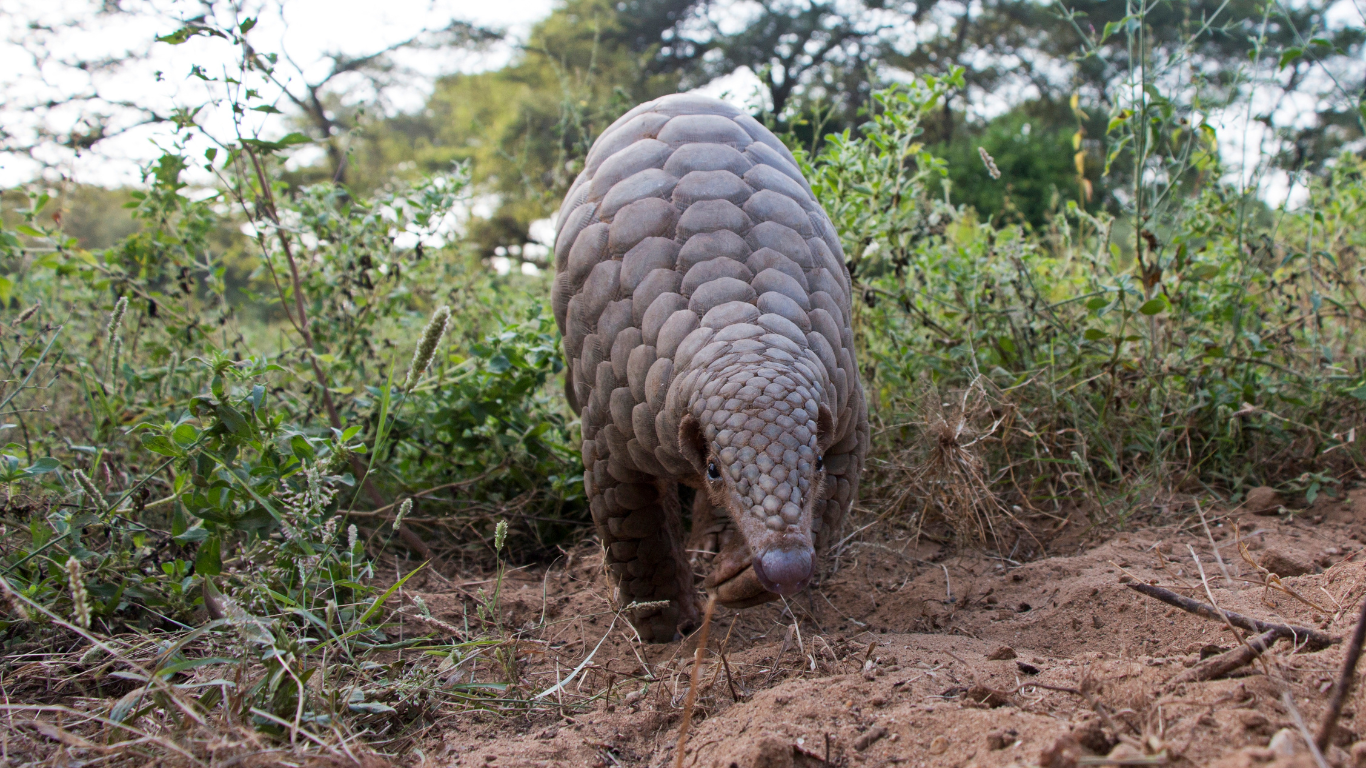Disturbing video footage of a mother bear and her cub ruthlessly shot to death off the side of a Russian submarine in Kamchatka has outraged animal activists across the globe.
The heart-breaking images showed the animals sitting on the nuclear submarine deck docked at a military port in the country's Far East before being gunned down and tumbling into the water.
According to a statement released by the Eastern Military District's press service for the Pacific Fleet, the bears had swum across the circular Krasheninnikov Bay off Vilyuchinsk before entering the pier zone on the deck of one of the submarines. The Russian Navy commands one of the biggest submarine fleets in the world with an estimated 58 vessels.
Despite showing no outward aggression, the bears were said to “pose a risk to people”. The navy instructed that they were to be shot dead "using specialized hunting weapons".
In the video, a man (believed to be a sailor) reportedly explained how there “was no other way to get rid of the bears”. In the clip, he says that had the military taken action to drive the bears from the boat, the mother and the cub would have returned to one of the nearby villages. "This is how you have to fight bears in Kamchatka," he was quoted as saying.
Other reports have since surfaced claiming that the mother bear “was very emaciated and wounded and the cub would allegedly become aggressive without its mother”.
According to The Moscow Times, the two bears had been spotted around villages in the days before they died, with locals having to chase them away.
Meanwhile, animal lovers have accused the Russian navy of blatant animal cruelty after someone leaked the video to social media.
Between 10,000 and 14,000 brown bears live on the secluded Kamchatka peninsula, wedged between the Sea of Okhotsk on the west, and the Pacific Ocean and Bering Sea on the east. Since the start of the year, numerous bears have wandered too close to human settlements searching for food. Sadly, they paid the ultimate price and were executed.
Environmentalists believe climate change could be to blame, with weak coastal ice forcing the bears to search for food inland rather than at sea. Climate change has caused the Arctic to warm twice as fast as the rest of the world, resulting in considerable declines in sea ice every year, according to a report released by the National Oceanographic and Atmospheric Administration (NOAA) in 2018.
“Despite popular belief, Kamchatka brown bears are generally not dangerous to humans, and only one percent of encounters result in unprovoked attacks,” said Nicolette Peters of the Animal Survival International (formerly Political Animal Lobby).
“Like most mammals, mother bears are very protective of their babies and keep a close eye on them after they’ve left the den. It’s unacceptable that somebody brutally killed this little family. Despite what the navy may have said, there are always other options, and they should have found a solution that did not result in the bloodshed of two innocent animals.”

